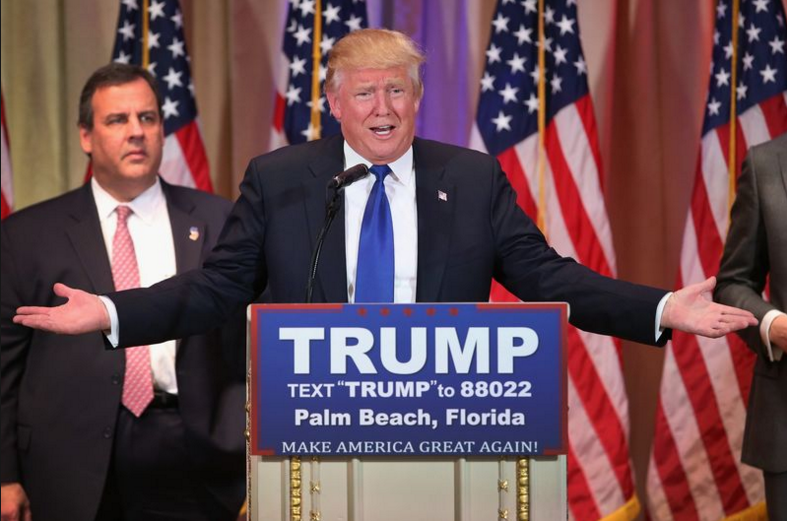Former Republican presidential candidate Chris Christie recently made a public announcement declaring his endorsement of Donald Trump for the Republican nomination. Shortly thereafter, fellow race-dropout Ben Carson voiced similar support. As the date of the 2016 presidential election looms overhead, politicians are scrambling to get their voice heard; after abandoning his attempts to secure the nomination for himself, Christie is now doing the next best thing: getting on Trump’s good side.
As governor of New Jersey, Christie has proven himself to be an assertive and passionate politician, working hard to defend his beliefs and principles. So, after a relatively short-lived presidential campaign marked by vicious attacks on all sides, what made Christie compromise his beliefs? Many political analysts criticized Christie’s move, labeling it as cowardice and a blatant attempt to secure a spot in Trump’s cabinet. Columnist Jonah Goldberg wrote, “Christie boasted constantly about the need to tell the American people hard truths and he endorsed the guy who tells little more than easy lies.” However disappointing to hopeful Republicans and Christie loyalists, Christie’s move raises an important question: should politicians stand by their beliefs even when an opportunity to obtain political influence presents itself at the cost of sacrificing core values?
Most politicians would say yes; but then again, Christie himself failed to “get off the Trump train before it’s too late,” as he advised voters to do. Politics change, people change. But in the game of politics, it becomes clear that presidential nominee endorsements are more than just a political change of heart. By endorsing Trump’s campaign, Christie sees Trump as the presidential nominee; and, with Trump leading second-place nominee Ted Cruz by nearly one hundred delegates at this point, many other politicians are finally forced to confront the fact that Donald Trump may very well receive the Republican nomination. Christie’s early support secures him influence in the future of Trump’s campaign, and perhaps this is a blessing in disguise for the Republican party: the more respectable, moderate politicians that support Trump, the less concentrated his radical and controversial tendencies become. That is what we hope, at least.
It is also interesting to consider that four nominees have dropped out of the Democratic race, but none of them have rushed to either Hillary Clinton or Bernie Sanders’ side. Perhaps these nominees simply do not want to support either remaining candidate. On the other hand, this might be representative of Republican party fear over the possibility of Trump’s nomination. Perhaps Christie and Carson hope to dilute some of Trump’s more extreme notions before the Republican party loses any more respect, or perhaps they are chasing better personal political opportunity. Presumably, the Democratic party candidates who have dropped out themselves trust the voters enough to let Sanders and Clinton figure it out themselves.
As the so-called “Trump train” moves full steam ahead, it is up to the Republican party to take action to ensure the just nomination of the most qualified and honorable candidate. Christie and Carson may be taking precautions by endorsing the most radical candidate, or they may have simply accepted personal defeat and resigned themselves to assume the roles of Trump’s future advisors. Although Trump might say everything is already set in stone, only time will reveal the true fate of the Republican party and, possibly, the fate of America.
Erin Grant
staff writer

